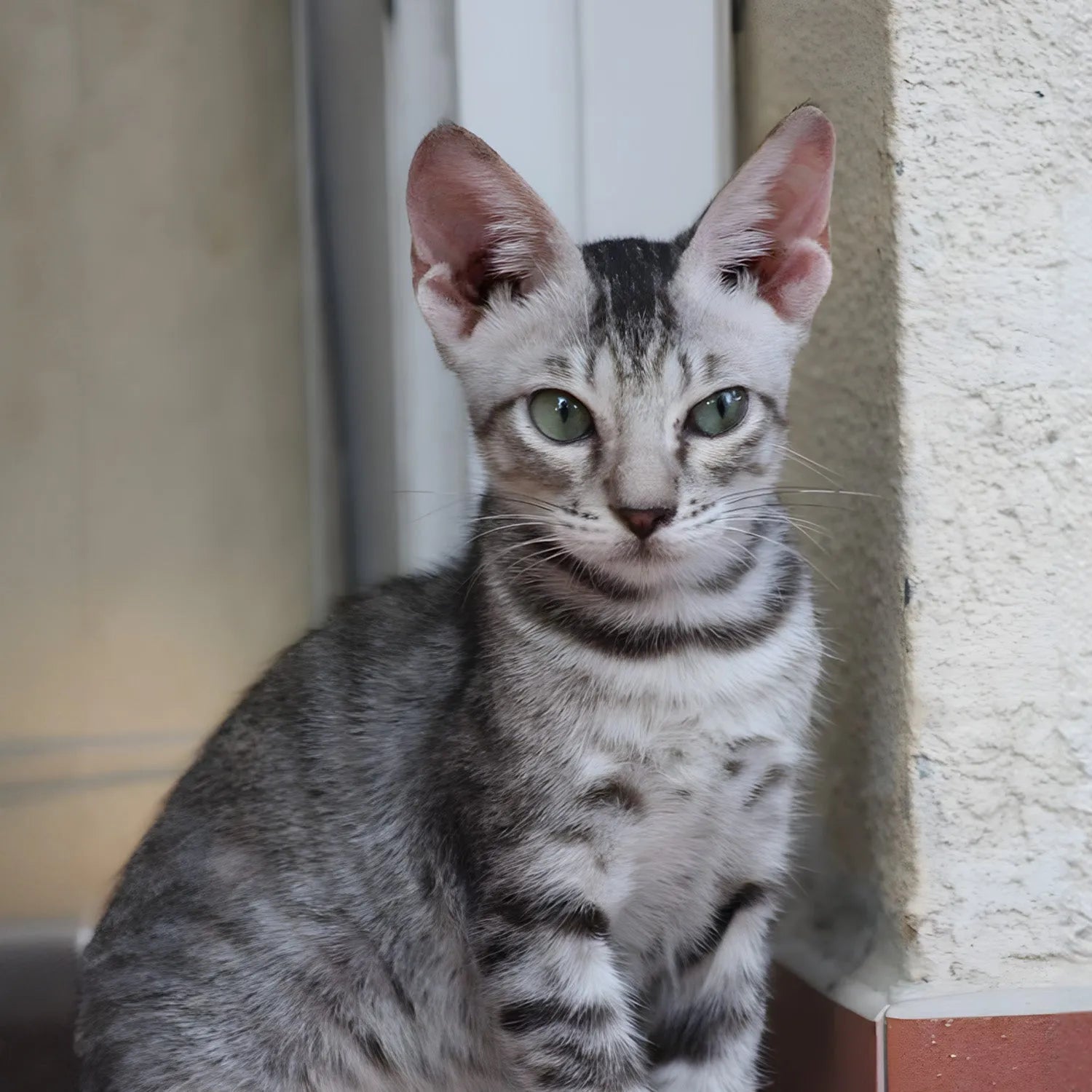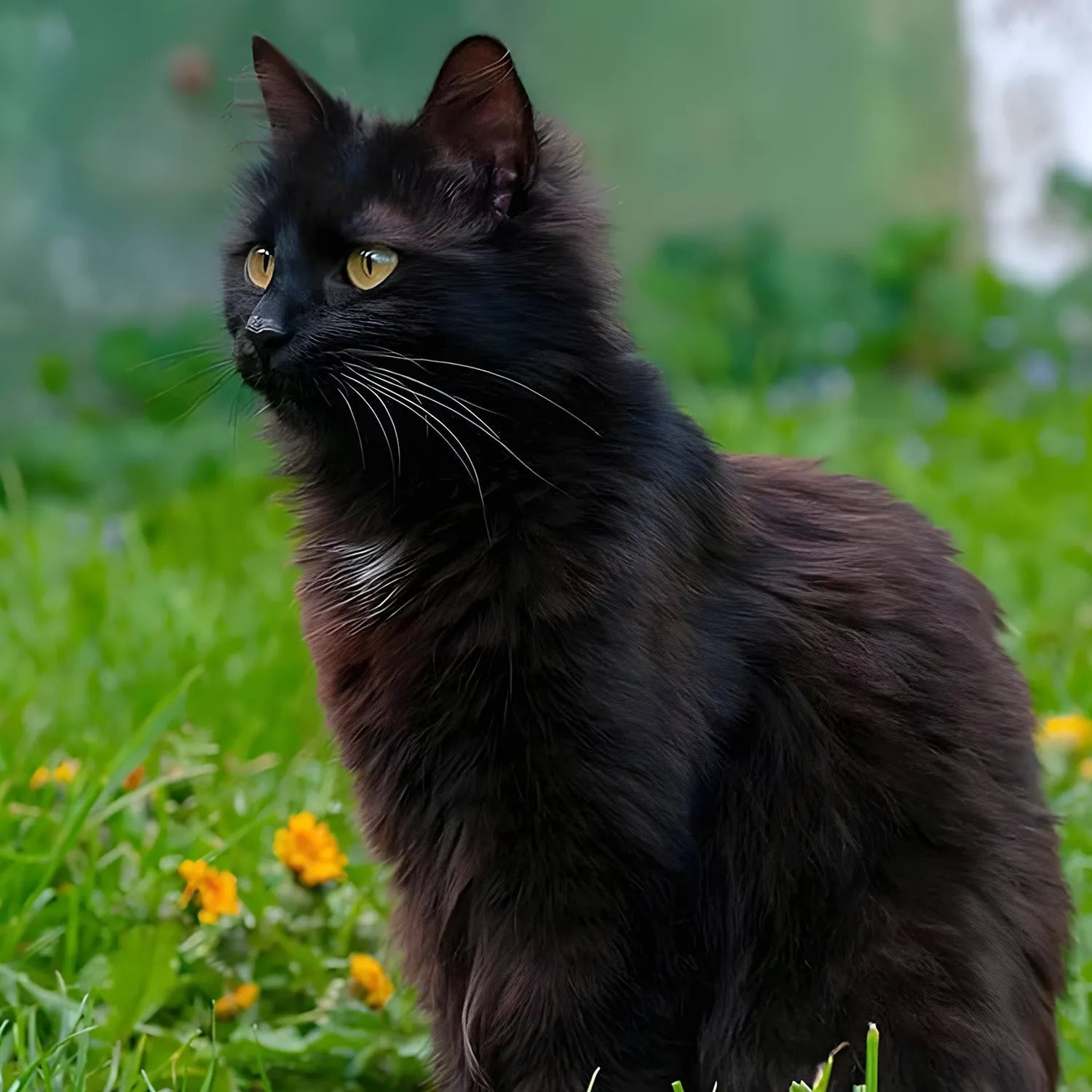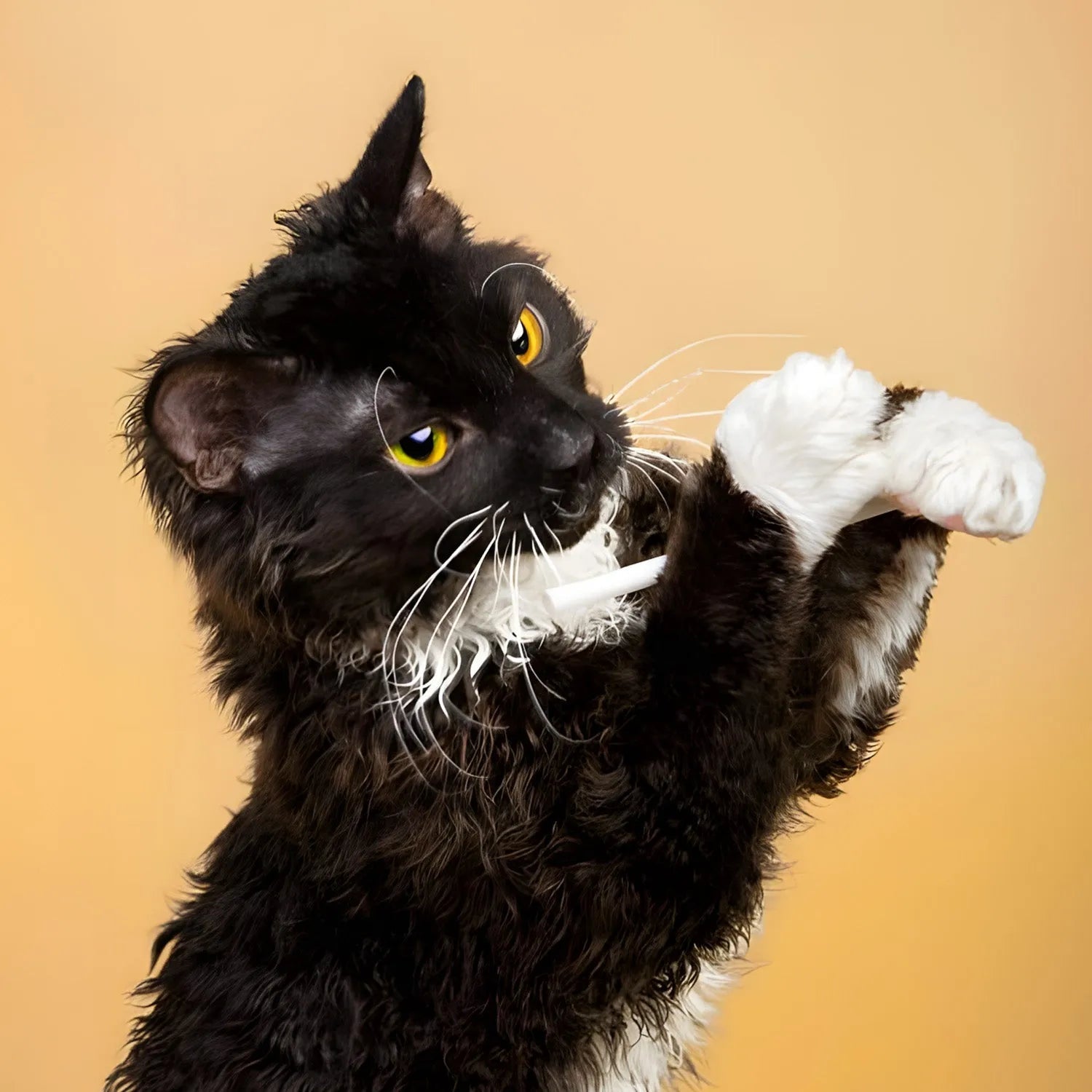Brazilian Shorthair: The Adaptable and Affectionate Feline
Introduction
The Brazilian Shorthair is a breed that embodies versatility, elegance, and affection. Originally a street cat in Brazil, this breed has evolved into a loving and loyal companion, perfect for a variety of households. With its sleek coat, athletic build, and friendly demeanor, the Brazilian Shorthair is a cat that thrives in almost any environment. In this blog, we’ll explore the Brazilian Shorthair’s lifestyle, behavior, grooming needs, trainability, and how it interacts with humans and other pets.
Ratings (1-5)
-
Environmental Adaptability: 5
-
Food Consumption: 3
-
Need for Companionship: 4
-
Trainability: 4
-
Tolerance of Children: 5
-
Ease of Domestication: 5
History and Origins
The Brazilian Shorthair cat is a relatively new breed that has its roots in the streets of Brazil. These cats were originally street cats, or "moggy" cats, that roamed the cities and rural areas of Brazil. In the 1980s, a Brazilian cat breeder named Paulo Samuel Ruschi began a project to standardize the breed, selecting cats that exhibited specific traits such as a sleek coat, athletic build, and a friendly, adaptable personality. Through selective breeding, the Brazilian Shorthair was developed, and the breed was officially recognized by the World Cat Federation in 1998. Today, the Brazilian Shorthair is recognized as Brazil’s first native cat breed and is gaining popularity worldwide.
Physical Characteristics and Colors
The Brazilian Shorthair is a medium-sized cat with a sleek, muscular build. It has a short, dense coat that comes in a wide variety of colors and patterns, including solid, tabby, tortoiseshell, and bicolor. The breed's eyes are large, expressive, and can be green, yellow, or blue, depending on the coat color. The Brazilian Shorthair's head is slightly rounded with a well-defined chin and a straight nose, giving it a balanced and elegant appearance. The breed's overall look is one of grace and agility, reflecting its street cat origins while also showcasing the refinement of a carefully bred cat.
Lifestyle and Behavior
Brazilian Shorthairs are known for their adaptable and easygoing nature. They are highly active cats that enjoy playing, exploring, and climbing. Despite their energetic tendencies, they are also affectionate and enjoy spending time with their human companions. Brazilian Shorthairs are social cats that thrive on interaction and are known for their loyalty to their families. They are also known to be very curious and intelligent, often finding ways to entertain themselves if left alone. This breed is well-suited for a variety of living situations, from bustling households with children to quieter homes where they can receive one-on-one attention.
Trainability and Intelligence
Brazilian Shorthairs are intelligent cats that can be trained to follow basic commands and perform tricks. They are quick learners and respond well to positive reinforcement techniques, such as treats and praise. Brazilian Shorthairs enjoy mental challenges, making them adept at learning new things, whether it's fetching, sitting on command, or navigating an obstacle course. Their intelligence also makes them highly adaptable to changes in their environment, and they often enjoy learning new routines or exploring new spaces. With their keen curiosity, they can be easily trained to use scratching posts and litter boxes, making them an ideal breed for first-time cat owners.
Social Behavior and Human Interaction
Brazilian Shorthairs are social animals that form strong bonds with their human families. They are known for their affectionate nature and enjoy being involved in every aspect of their owner’s life. This breed is often happiest when it is in the company of its human companions, and it will follow its owners from room to room, often seeking out attention and affection. Brazilian Shorthairs are particularly known for their loving and gentle demeanor, making them ideal companions for those seeking a loyal and affectionate pet. They are generally quiet cats, but they will communicate with their owners through soft meows and purrs.
Compatibility with Children and Other Pets
Brazilian Shorthairs are excellent companions for children. Their playful and gentle nature makes them a great match for families. They enjoy interactive play and are generally tolerant of children’s antics, provided they are treated with respect. Additionally, Brazilian Shorthairs tend to get along well with other pets, including dogs, as long as they are properly introduced. Their sociable and adaptable nature allows them to integrate well into multi-pet households, and they often enjoy the company of other animals as much as they do humans. Brazilian Shorthairs are known for their ability to form strong bonds not only with their human families but also with other pets in the household.
Grooming and Care
The grooming needs of a Brazilian Shorthair are minimal due to their short coat. Weekly brushing is usually sufficient to remove loose hairs and keep their coat looking shiny and healthy. Regular dental care, ear cleaning, and nail trimming are also important to maintain their overall health. Despite their low-maintenance grooming needs, Brazilian Shorthairs enjoy the bonding time that grooming sessions provide, and it can be a great way to strengthen the bond between cat and owner. Bathing is generally not necessary unless the cat gets particularly dirty, as Brazilian Shorthairs are generally good at keeping themselves clean.
Health and Lifespan
Brazilian Shorthairs are generally healthy cats, with no specific genetic disorders associated with the breed. However, regular veterinary check-ups and a balanced diet are essential to maintain their health. With proper care, Brazilian Shorthairs can live up to 14-20 years. Regular monitoring and preventive care are important to ensure a long and healthy life for your Brazilian Shorthair. Their robust health is one of their most appealing traits, making them a relatively low-maintenance breed in terms of healthcare.
Environmental Adaptability
Brazilian Shorthairs are highly adaptable cats that can thrive in various living environments. They are known for their resilience and can adjust well to different climates and household settings. Whether in an apartment or a house with a yard, Brazilian Shorthairs will find ways to entertain themselves and stay active. Their adaptable nature makes them well-suited to a wide range of living conditions, and they are equally comfortable as indoor or indoor/outdoor cats, provided they are kept safe.
Feeding Requirements
A balanced diet is crucial for maintaining the Brazilian Shorthair's health and energy levels. High-quality cat food that is rich in protein is recommended. Fresh water should always be available. Consult your veterinarian for specific dietary recommendations based on your cat's age, weight, and health needs. Monitoring their diet to prevent obesity is essential, as Brazilian Shorthairs can be prone to overeating if not properly managed.
Conclusion
The Brazilian Shorthair is an adaptable and affectionate breed that brings joy and companionship to any household. Their intelligence, easygoing nature, and strong bonds with their human companions make them wonderful pets for families and individuals alike. If you’re looking for a cat that combines versatility with a loving and sociable personality, the Brazilian Shorthair might be the perfect fit for you.
For more information about other cat breeds and pet care tips, stay tuned to our blog!
References:
-
Ruschi, P. S. (2021). "The Development and Characteristics of the Brazilian Shorthair." *Journal of Feline Studies*, 35(3), 201-215.
-
Lima, R. (2020). "Caring for Your Brazilian Shorthair: A Comprehensive Guide." *Cat Lover’s Magazine*, July issue, pp. 30-40.
-
Silva, M. (2019). "Health and Wellness in Brazilian Shorthairs." *Veterinary Journal*, 79(2), 123-137.


